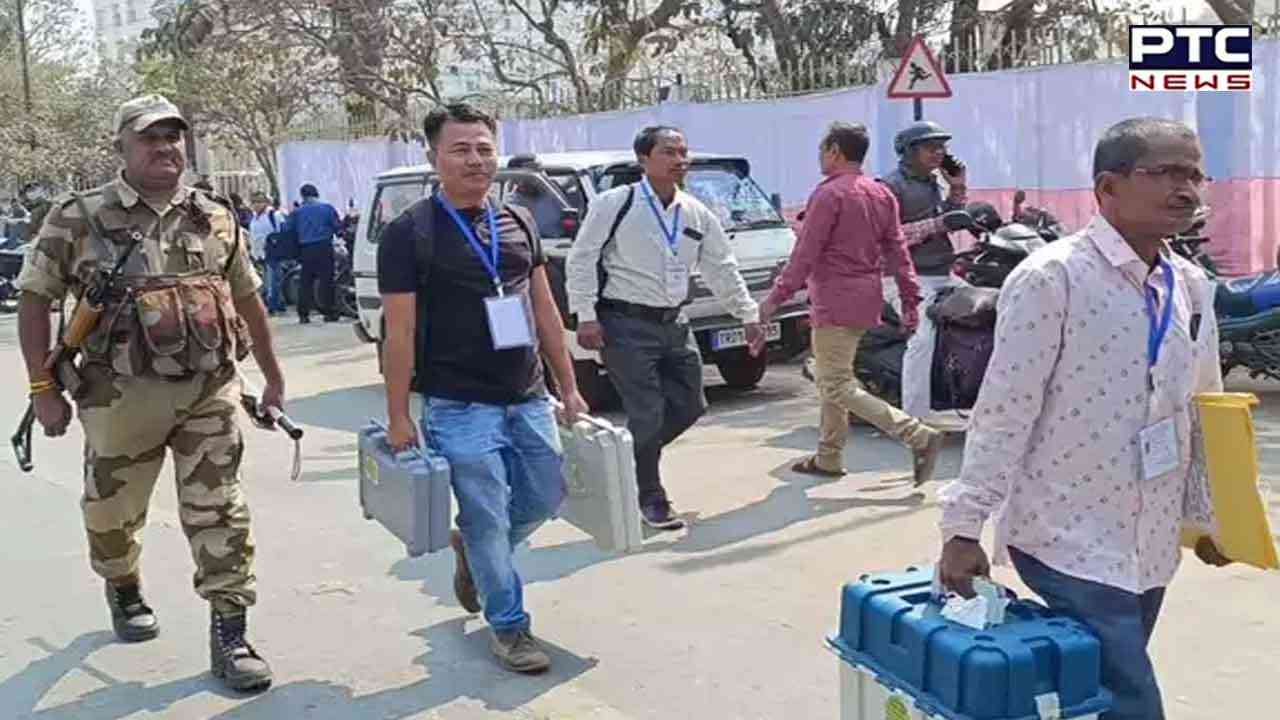J&K elections: 239 candidates compete across 26 Assembly seats, 131 crorepatis in fray for phase 2 tomorrow
This election marks the first Assembly election in Jammu and Kashmir after the abrogation of Article 370 and the state's reorganisation
PTC Web Desk: Jammu and Kashmir will witness voting for the second phase of its Assembly elections on Wednesday, September 25. Polling will take place across 26 Assembly seats spread over six districts, where approximately 25.78 lakh voters will be eligible to cast their votes.
Out of the 26 seats in this phase, 15 are located in Central Kashmir and 11 in the Jammu region. According to the Election Commission, a total of 239 candidates are contesting in this round. Among them, six are female candidates.
A significant number of the candidates are wealthy, with 131 of them declared as crorepatis (millionaires). Additionally, 49 candidates have criminal cases pending against them. Notably, Jammu and Kashmir BJP president Ravinder Raina has declared his assets as merely Rs 1,000.
Former Chief Minister and National Conference (NC) vice president Omar Abdullah is contesting from two seats: Ganderbal and Beerwah. In a setback during the last Lok Sabha elections, Omar lost the Baramulla seat to Engineer Rashid, who contested from Tihar Jail. This time, Omar faces a unique challenger in Ganderbal – Sarjan Ahmad Wagay, also known as "Azadi Chacha," who is currently in jail.

The first phase of the Assembly elections was conducted on September 18, during which voters from 24 Assembly constituencies across seven districts cast their ballots. Voter turnout in the first phase was reported at 61.38%. The highest voter turnout was recorded in Kishtwar at 80.20%, while the lowest turnout was in Pulwama, where 46.99% of voters participated.
Srinagar to see maximum voting; PDP fields candidates across all seats
In the second phase, the highest number of seats—eight—are located in Srinagar, while Ganderbal has the least, with only two constituencies. Other districts in this phase include Budgam and Rajouri, with five seats each, and Reasi and Poonch, each with three seats. The constituencies fall under two divisions: Ganderbal, Srinagar, and Budgam in the Srinagar Division, and Reasi, Rajouri, and Poonch in the Jammu Division.
The Habba Kadal seat in Srinagar has the largest number of candidates, with 16 vying for the seat, while the Budhal seat in Rajouri has the fewest, with only four candidates.
The People's Democratic Party (PDP) is contesting all 26 seats in this phase. Its ally, the National Conference (NC), has fielded candidates on 20 seats, while the Congress is contesting six seats. The BJP has put up candidates in 17 constituencies, and 98 independent candidates are also in the fray. Srinagar district alone will see 93 candidates in contention, followed by Budgam with 46, Rajouri with 34, Poonch with 25, Ganderbal with 21, and Reasi with 20.
All Congress candidates are millionaires
A report, based on the affidavits of 238 candidates contesting in the second phase, sheds light on the financial status of the contenders. The average assets of these candidates stand at Rs 5.80 crore.
Out of the 238 candidates, 55% (or 131 candidates) are crorepatis, owning assets worth over Rs 1 crore. All six Congress candidates in this phase are millionaires, with an average asset value of Rs 29.39 crore. The PDP is not far behind, with 19 out of its 26 candidates being crorepatis.
The candidate with the highest declared assets is Syed Mohammad Altaf Bukhari, the leader of Jammu and Kashmir Apni Party, whose assets are valued at Rs 165 crore. On the other hand, independent candidate Mohammad Akram has declared assets of just Rs 500. BJP president Ravinder Raina has declared his assets at a mere Rs 1,000.
49 candidates face criminal charges; 8 seats classified as red alert
According to the report, 49 out of the 238 candidates (or 21%) in this phase have criminal cases registered against them. Furthermore, 16% (37 candidates) are facing serious charges such as murder and kidnapping. Three candidates have been accused of attempted murder, while seven candidates are facing charges related to crimes against women, including one who has been booked under Section 376 of the Indian Penal Code for rape.
Eight constituencies in this phase have been classified as "Red Alert" seats—defined as constituencies where three or more candidates have criminal cases against them. These constituencies include Habba Kadal, Eidgah, Budgam, Ganderbal, Kalakote-Sunderbani, Beerwah, Zadibal, and Khansahib.
Last Assembly elections held in 2014
The last Assembly elections in Jammu and Kashmir were held in 2014, which resulted in a coalition government between the BJP and PDP. However, the alliance collapsed in 2018, leading to the fall of the government. Following the collapse, Governor's rule was imposed for six months, as per the Jammu and Kashmir Constitution, after which President's rule was implemented.
In 2019, amidst President’s rule, the country held its general elections, where the BJP won a decisive majority and returned to power at the Centre. On August 5, 2019, the BJP government abrogated Article 370, which granted special status to Jammu and Kashmir, and bifurcated the state into two Union Territories: Jammu and Kashmir, and Ladakh.
This election marks the first Assembly election in Jammu and Kashmir after the abrogation of Article 370 and the state's reorganisation.